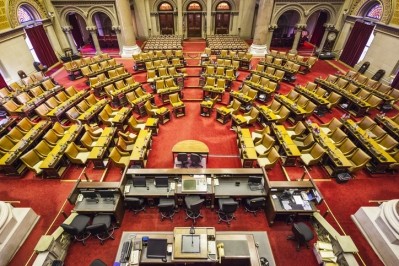CRN: State-led restrictive bills could drive young people to the ‘dark corners of the internet’
Attempts in California and New York last year ended up on the desk of their Governors, only to be vetoed at the last moment.
Maryland recently joined the list when bills were filed there in both its House and Senate.
Speaking with NutraIngredients-USA, Steve Mister, President and CEO of the Council Responsible Nutrition, who testified in Maryland during a recent hearing of the Maryland’s House of Delegates’ Economic Matters Committee, explained that, unlike some of the other State bills, which predominantly target brick and mortar retailers, the Maryland bill does have a provision that attempts to restrict access to these products for sale over the internet, “but these are not very robust, and as we all know, it’s almost impossible to catch shipments being mailed into a state to an underage person.
“That’s the real problem with these bills,” he added. “There really is no solvency for addressing the internet problem, and when you look at where the industry is most vulnerable when it comes to these weight loss products, it is the dark corners of the internet
“The irony is that these people are trying to make the world safer for young people but what they’re doing is locking down the products they would get at a legitimate retailer and driving them into the dark corners of the internet to buy products, where, if they’re going to find something that’s harmful, that’s most likely where they’ll find it.”
California…
Mister also noted that, while Governor Newsom vetoed AB3141 last year, the Governor has now set up a task force in the Department of Public Health that is looking at solutions to this issue.
“California is not dead,” he said. “Somebody has already introduced the bill again in the California Assembly. That version of the bill probably won’t go anywhere because it’s identical to the one the Governor vetoed, but it’s setting the stage for this task force to come back with recommendations, and we could see another bill.”
Mister said that all the bills are based on, what he wants to believe to be, the well-intended but misguided notion that there is some causal connection between these dietary supplements and then the manifestation of an eating disorder.
“We know that’s not the case. So, one of the things we’ve done… this year, we commissioned an outside study to do a literature review and say, is there anything in the scientific literature that would support this theory of a causal effect.”
The paper, which has been through the peer-review process, concluded that “there is absolutely no evidence in the scientific community that support this causation.”















